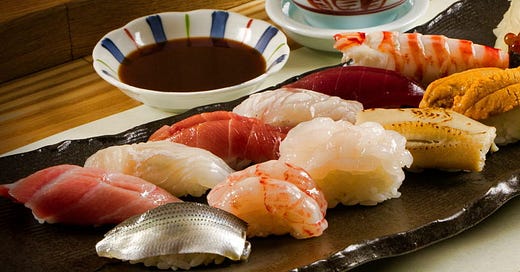I was raised on the ethos of ‘do what you love, and you’ll never work a day in your life.’ I was a kid and watched Ariel flee from her dad to sell her voice to a witch. I have promoted the ‘escape the cubicle’ lifestyle for two decades.
Follow your heart has been the highest truth for a few generations. But I think it has overgrown its garden, choked itself, and become follow your every hunger.
We were raised to believe our instincts, our gut… but now we believe our taste buds and each flickering urge. We were raised to be consumers. It reminds me of my years going to church. I was not a member of a congregation. But a member of an audience. Which church has the best worship and most clever, funny, profound pastor? My motivation was not to be part of a community. Not to serve a community for God. But to consume. To be entertained on Sundays.
We’ve become consumers of our employment. The assumption is that jobs are evil and always exploitative, and we should drain it for whatever money we can with minimal effort. We were not raised to be proud producers, but sniveling hungry paper shredders hovering over a trash can.
The negative bias of work and the sanctification of consumption has poisoned us.
I finally watched ‘Jiro Dreams of Sushi’ this week. The industry-changing 2011 documentary about an 86 year old sushi chef who runs a restaurant in the Tokyo subway. A tiny restaurant. Seats maybe 8 people. Watch the doc and you’ll see that Chef’s Table was born from it. He had the same job for 70 years. Early in the movie, he drops this quote:
“Once you decide on your occupation... you must immerse yourself in your work. You have to fall in love with your work. Never complain about your job. You must dedicate your life to mastering your skill. That's the secret of success... and is the key to being regarded honorably.”
I’m in the muck of writing my next book and sometimes I feel dumb, stuck, simple and foolish. I felt like that last week. And then I saw this man making sushi. Immerse yourself in your work. Fall in love with your work. Dedicate your life to mastering your skill.
Oprah says, ‘do your best, and people notice. If you make the best fries, people will get in your line and wait for your fries.’
What if we committed to mastery? How would our lives change?
What would you like to master?
And I don’t believe you have to know it’s sushi at 15 and do it the rest of your life. Master what’s in front of you. Or master what nags at you. Collect tools for your tool belt. You don’t know what you’ll build someday.
I know I don’t need to say this because duh but I will: of course companies manipulate and exploit their workers. Of course some jobs are drudgery and soulless. Of course you don’t have to go to the closest church to your house even if the pastor is insane and the worship sounds like Fergie’s national anthem. Of course if your dad wants you to fall in line as a mermaid, fuck off and marry a man.
What I’m saying is… we’ve over-indexed on being consumers rather than producers. Being entitled to receive rather than aiming to contribute. Being acted upon rather than actors. Pursuing exclusively happiness rather than pride. Eating rather than being full. Calories rather than muscle.
Be someone you’re proud of.
I have more thoughts on Jiro’s idea of loving what you do. It has to do with the focus that love provides. That will come soon.







I am more and more drawn to stories of contentment, smallness, ENOUGH these days. I read an essay in Kinfolk’s Journey’s book that has really moved me. It’s about a mailman in rural New Zealand who takes a maximum of 7 local tourists on his 75 mile mail route if they so choose. It’s slow travel defined. He knows all 600 people that he delivers mail to. There is one general store that serves everyone. A couple of decades ago Christchurch’s port was damaged in a storm and they had to divert cruise ships to the port in this small community. They had thousands and thousands of tourists and no doubt a ton of money pour in. But the locals hated it. They didn’t want to get bigger or shinier or “more efficient.” When the Christchurch port was repaired and the cruise ships stopped coming, this community was relieved. No one missed the influx of money or people. The general store wasn’t out to make millions on their patrons. Everyone just wants enough to live on and to enjoy life and live together in community. People look out for each other. And a mailman drives a van and invited people along to see it for themselves. I can’t stop thinking about what does “enough” mean. In, well…. Everything.
I am turning 30 tomorrow and wrapped up in making that mean something. It feels like a deadline. Thank you for this.